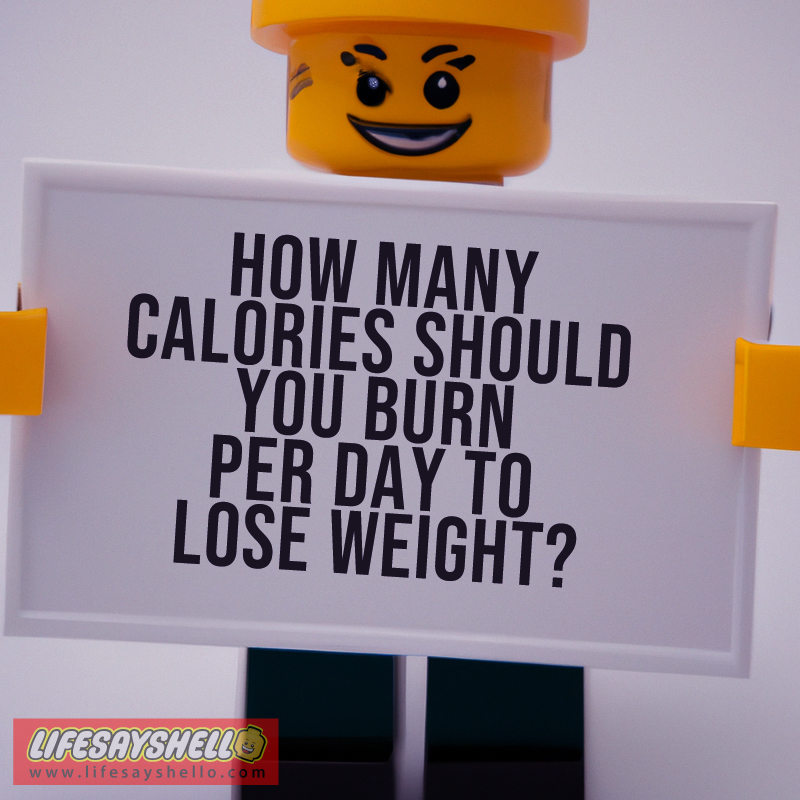Why Am I Not Losing Weight? 15 Possible Reasons You're Stuck

Have you been eating healthy and exercising, but still not seeing the number on the scale go down? Losing weight can be frustrating when you feel like you're doing everything right, yet the results just aren't there. The truth is, weight loss is complex, and there are many potential reasons why you may be hitting a plateau or not losing weight at all. In this article, we'll explore the 15 most common mistakes and issues that could be sabotaging your efforts.
1. You're Eating Too Much or Too Little
This may seem obvious, but one of the most common reasons people struggle to lose weight is inaccurate calorie tracking. You may be underestimating your portions or forgetting to log snacks and drinks, causing you to eat more calories than you think. On the flip side, significant calorie restriction can also backfire and stall weight loss. When you cut calories too low, it triggers survival mechanisms in the body that slow down your metabolism. Aim for a moderate calorie deficit of about 500 calories per day for steady weight loss.
2. You're Not Eating Enough Protein
Protein is the most important macronutrient for losing weight. It helps you feel full and satisfied, increases metabolic rate, and prevents muscle loss when in a calorie deficit. Research suggests eating 0.7-1 gram of protein per pound of body weight daily for optimal fat loss. Make sure to incorporate high protein foods like lean meats, eggs, dairy, beans, and nuts into your diet.
3. You're Not Drinking Enough Water
Being even mildly dehydrated can cause your body to retain water and stall weight loss. Increase your water intake to at least eight 8-ounce glasses daily. Adding lemon, mint, cucumber or fruit can add flavor. Limit sugary drinks and stick to water, unsweetened tea, and black coffee. Staying hydrated will keep your metabolism revved up.
4. You're Not Getting Enough Sleep
Skimping on sleep can seriously mess with weight loss efforts. Being sleep deprived disrupts appetite-regulating hormones like leptin and ghrelin. This can increase hunger and cravings for high-calorie foods. Lack of sleep also impairs insulin sensitivity and increases cortisol levels, which can drive fat storage. Aim for 7-9 hours of quality sleep per night.
5. You're Too Stressed Out
Chronic stress and elevated cortisol levels promote weight gain, especially around the midsection. Cortisol stimulates appetite and cravings while ramping up fat storage. Managing stress through meditation, yoga, adequate sleep, and other relaxation techniques can help normalize cortisol and make it easier to lose weight.
6. You're Eating Out Too Often
Restaurant portions are notoriously large and high in calories, fat, and sodium. Even seemingly healthy dishes can pack on extra calories from cooking oils, sauces, cheese, croutons, and other add-ons. Limit dining out to 1-2 times per week and be mindful when ordering. Opt for grilled instead of fried, ask for sauces on the side, and take home leftovers.
7. You're Waiting Too Long to Eat
Going long periods without eating can cause your body to conserve energy and store more fat when you do finally eat. This is especially true with very low calorie or starvation diets. Eat smaller meals and snacks every 3-4 hours to keep your metabolism humming. Don't wait until you're ravenously hungry to eat.
8. You're Sitting All Day
A sedentary lifestyle is a huge obstacle for weight loss. Sitting for long periods slows metabolism and causes your body to store more fat. Incorporate movement throughout your day with a standing desk, taking the stairs, parking farther away, walking during lunch, and doing bodyweight exercises. Work your way up to 150 minutes of moderate activity per week.
9. You Have Insulin Resistance
Insulin resistance prevents cells from absorbing glucose properly, causing high blood sugar. The pancreas compensates by producing more insulin, which can increase hunger, fat storage, and inflammation. Losing just 5-10% of body weight and exercising regularly can dramatically improve insulin sensitivity. Ask your doctor about getting tested.
10. You're Drinking Artificially Sweetened Beverages
While diet soda and other artificially sweetened drinks are lower in calories, research suggests they may still contribute to weight gain. Artificial sweeteners confuse your body's ability to correlate sweetness with caloric intake. This can increase cravings for sugary, high-calorie foods. Stick to unsweetened beverages as much as possible.
11. You're Not Exercising Enough or Need More Variety
Exercise is crucial for fat loss, but overdoing steady-state moderate cardio can backfire. Too much can spike cortisol and appetite while burning lean muscle mass. Mix up your workouts with high intensity interval training, strength training, yoga, Pilates, hiking, dance classes, tennis, and other activities. Work different muscle groups and keep your body guessing. Aim for 150 minutes of moderate or 75 minutes of vigorous activity per week.
12. You're Relying Too Much on "Avoid" Lists
Banning entire food groups can backfire on weight loss efforts. Deprivation often leads to intense cravings and binge eating. Moderation and balance are key. Allow yourself small portions of treats here and there so you don't feel restricted. Focus on crowding out less healthy foods by adding more vegetables, lean protein, whole grains, and healthy fats.
13. You're Not Eating Enough
Severely restricting calories seems logical for weight loss, but it's counterproductive. When you consume too few calories, your body goes into conservation mode and slows down your metabolism to maintain homeostasis. This makes it nearly impossible to lose weight. Don't go below 1200 calories per day unless supervised by a doctor.
14. You're Ignoring Your Diet Even Though You Exercise A Lot
You can't out-exercise a bad diet. While exercise provides many health benefits, weight loss still comes down to your calorie balance. Even if you're putting in long hours at the gym, overeating will hinder fat loss. Track your intake, reduce portions, choose healthier options, and fuel properly for your workouts. Exercise complements diet.
15. You Have an Underlying Health Condition
In some cases, an underlying health condition could be sabotaging your weight loss efforts. Conditions like hypothyroidism, PCOS, Cushing's disease, and depression can make weight loss more difficult. Chronic stress and lack of sleep also influence hormone levels. See your doctor to rule out any medical issues.
Takeaway: Weight Loss is Complex, Be Patient and Get Support if Needed
As you can see, there are many potential sabotagers when it comes to losing weight. Small changes in your eating habits, activity levels, and lifestyle can make a big difference. Remember that lasting weight loss takes time and consistency. Don't get discouraged by day-to-day fluctuations on the scale.
The most important thing is to focus on making sustainable, maintainable changes rather than extreme short-term fixes that never last. If you feel like you've made positive changes but you're still not seeing results, don't lose hope. Seek support from a registered dietitian or qualified personal trainer to help identify any hurdles.
Weight loss is a journey, not a sprint. With patience, hard work, commitment, and support you can break through frustrating plateaus. Use the tips in this article to reflect on any areas you can improve. Even small tweaks to your habits can get you back on track to reach your weight loss goals.




Comments